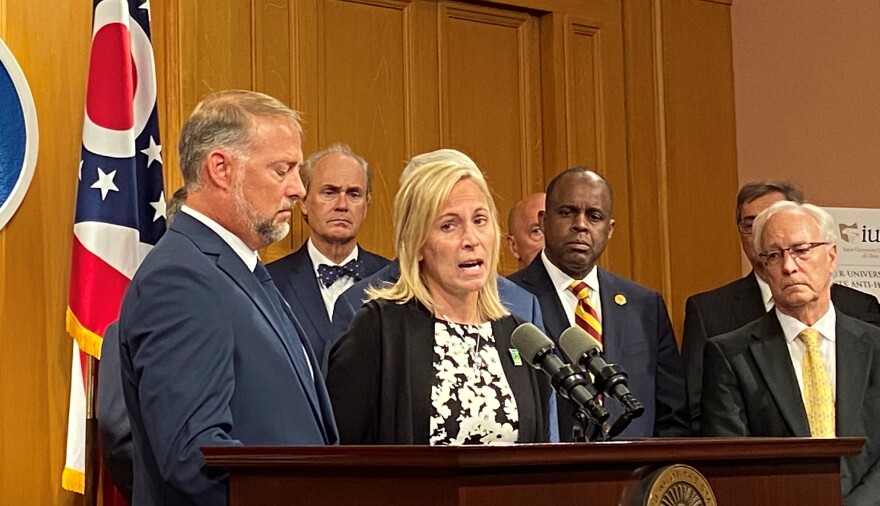Ohio has a new law that stiffens penalties for people convicted of hazing at the state’s college campuses. Now, the public colleges themselves are taking actions to prevent hazing.
The Inter-University Council, which represents Ohio’s public universities, has what it says is a zero-tolerance approach to hazing. It includes, among other things, automatic dismissal of students who are guilty of hazing.

Rodney Rogers, president of Bowling Green State University, says this is "a logical next step" after Ohio lawmakers passed a new law to crack down on hazing that Gov. Mike DeWine signed into law earlier this month. "We will help eradicate hazing," Rogers says. "That is our goal."
Cory Foltz, the father of Stone Foltz, who died following a hazing incident at BGSU earlier this year, urges college presidents to enforce the plan.
“We are counting on you to never leave any one of your students behind so no other family will ever endure the pain of losing a loved one like we did. Please, no more deaths from hazing," Cory Foltz says.
The university anti-hazing principles also include going after student groups that encourage hazing and educating students, parents and alumni about the dangers associated with it.





